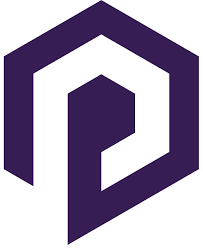Healthcare Documentation Specialist vs Healthcare Operator

Want personalized recommendations?
Let's match you to the right program

Key Points:
- Healthcare Documentation Specialists focus on medical records and transcription; Healthcare Operators manage the day-to-day operations of healthcare facilities.
- Healthcare Documentation Specialists typically earn less than Healthcare Operators.
- Both roles are in demand.
- Healthcare Documentation Specialists often complete online or in-person certification programs, while Healthcare Operators may require in-person management training.
- Healthcare Documentation Specialist training is generally less expensive and shorter than the training required for Healthcare Operators.
In the ever-evolving field of healthcare, there are a wide range of career opportunities available. Two such career options are that of a Healthcare Documentation Specialist and a Healthcare Operator. While both professions are integral to the smooth functioning of a healthcare facility, they have distinct roles and responsibilities. In this blog post, we will explore the differences between a Healthcare Documentation Specialist and a Healthcare Operator, as well as discuss their job descriptions, education and training requirements, and career outlook and salary.
Article continues after recommendations
Recommended for you
What is a Healthcare Documentation Specialist and Healthcare Operator?
Healthcare Documentation Specialist
- A Healthcare Documentation Specialist, also known as a medical transcriptionist, is responsible for converting dictated recordings by healthcare professionals into written documents.
- They are skilled in transcribing medical terminology and have a strong understanding of grammatical and formatting guidelines.
- Healthcare Documentation Specialists play a vital role in maintaining accurate patient records, as their transcriptions serve as a legal document and are used for billing, research, and quality improvement purposes.
Healthcare Operator
- A Healthcare Operator, also referred to as a switchboard operator or telephone operator, is responsible for managing incoming and outgoing calls within a healthcare facility.
- They are the first point of contact for callers and must possess excellent communication and customer service skills.
- Healthcare Operators may also be responsible for dispatching emergency calls, paging healthcare professionals, and providing general information to callers.
Difference between a Healthcare Documentation Specialist and Healthcare Operator
- Job Role:
- A Healthcare Documentation Specialist focuses on transcribing medical dictations, ensuring accuracy and adherence to guidelines.
- A Healthcare Operator primarily handles telephone calls, directing them to the appropriate departments or individuals.
- Responsibilities:
- Healthcare Documentation Specialists are responsible for transcribing medical dictations, reviewing and editing transcriptions for errors, and ensuring the final documents are accurate and complete.
- Healthcare Operators handle incoming and outgoing calls, provide information to callers, transfer calls to the appropriate departments, and handle emergency situations.
- Skills:
- Healthcare Documentation Specialists require strong attention to detail, excellent typing skills, proficiency in medical terminology, and knowledge of transcription software.
- Healthcare Operators need exceptional communication skills, the ability to multitask, a calm demeanor, and knowledge of telephone systems and protocols.
- Work Environment:
- Healthcare Documentation Specialists typically work in office settings, either within healthcare facilities or remotely.
- Healthcare Operators work in call centers or on-site at healthcare facilities, where they interact with callers and healthcare professionals.
Healthcare Documentation Specialist vs Healthcare Operator: Job Description
Healthcare Documentation Specialist
- Transcribe medical dictations using transcription software and equipment.
- Review and edit transcriptions for errors, accuracy, and completeness.
- Ensure transcriptions adhere to formatting and grammatical guidelines.
- Maintain patient confidentiality and security of medical records.
- Collaborate with healthcare professionals to clarify dictations and ensure accurate transcriptions.
- Stay updated on medical terminology and industry guidelines.
Healthcare Operator
- Answer incoming calls and handle caller inquiries, providing information or transferring calls as necessary.
- Make outgoing calls to relay messages or schedule appointments.
- Manage emergency calls and dispatch them to the appropriate departments or individuals.
- Operate telephone systems and equipment, ensuring proper functioning.
- Maintain call logs and records of incoming and outgoing calls.
- Provide exceptional customer service and handle difficult or irate callers.
Healthcare Documentation Specialist vs Healthcare Operator: Education and Training
Healthcare Documentation Specialist
- Most employers require a postsecondary certificate or associate's degree in medical transcription.
- Courses in medical terminology, anatomy, physiology, and transcription software are beneficial.
- On-the-job training may be provided to familiarize individuals with specific healthcare facility guidelines and procedures.
- Professional certifications, such as the Certified Healthcare Documentation Specialist (CHDS) credential, can enhance job prospects.
Healthcare Operator
- A high school diploma or equivalent is typically required.
- On-the-job training is provided to familiarize individuals with telephone systems, protocols, and healthcare facility operations.
- Excellent communication and customer service skills are essential.
- Some employers may prefer candidates with previous experience in a similar role.
Get courses selected just for you
Try our powerful search engine
Healthcare Documentation Specialist vs Healthcare Operator: Career Outlook and Salary
Healthcare Documentation Specialist
- The career outlook for Healthcare Documentation Specialists is favorable, with a projected growth rate of 3% from 2020 to 2030, according to the Bureau of Labor Statistics.
- The median annual wage for Healthcare Documentation Specialists was $34,770 in May 2020.
Healthcare Operator
- The career outlook for Healthcare Operators is expected to decline by 2% from 2020 to 2030, as more healthcare facilities automate their telephone systems.
- The median annual wage for Healthcare Operators was $34,750 in May 2020.
Final Thoughts
While both Healthcare Documentation Specialists and Healthcare Operators play important roles in the healthcare industry, their responsibilities and job requirements differ significantly. Healthcare Documentation Specialists focus on transcribing medical dictations, ensuring accuracy and adherence to guidelines, while Healthcare Operators manage incoming and outgoing calls, providing information and directing calls to the appropriate departments or individuals. Individuals interested in pursuing a career in healthcare should carefully consider their skills and interests to determine which role aligns best with their goals and abilities.
Dreambound's educational programs cater to a wide range of locations, ensuring accessibility for individuals eager to explore new horizons. Delve into a more comprehensive understanding of the possibilities within these two vocations by visiting:

Pia Yapjoco is part of the school growth and sales team at Dreambound. She helps facilitate school partnerships that expand educational opportunities for aspiring students in allied health and other trades. Beyond work, she curates her pup's Instagram, hunts for hidden coffee gems, and escapes into cozy gaming.



